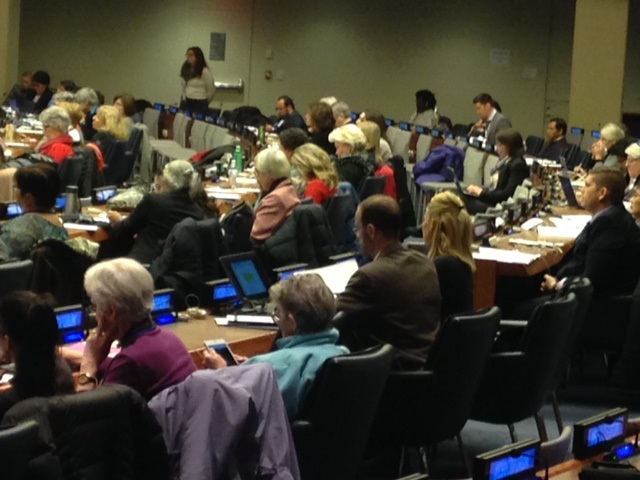The UN Commission on Social Development held its 55th session at UN headquarters in New York, February 1-10, 2017. As its theme “Strategies for the eradication of poverty to achieve sustainable development for all” indicates, development is truly sustainable only when poverty in all its forms has ended. This year’s meeting gave particular focus to the most vulnerable, in particular youth and those with disabilities.
It is important to note that while extreme poverty has been greatly reduced, which was the goal of MDG 1, relative poverty, or the gap between the rich and the poor, is growing. This is true in all nations, be they considered rich or poor. Representatives of many countries spoke of the strategies they are using to reduce poverty as well as some of the problems they face in this regard. For the European Union, high unemployment of the younger generation needs to be addressed. Costa Rica and Panama spoke of the need for “social maps” to locate those living in poverty and help them access existing resources. Nigeria noted that programs to address poverty need to be local and deal with underlying factors.
Both UN Officials and representatives of Civil Society noted the importance of social inclusion for all people so that they not only have the basic necessities but also achieve true human dignity. In his closing remarks, Commission Chair Philipp Charworth of Austria reiterated the fact that social policy should have as its goal the empowerment of individuals which may have a different face in different situations.
While governments have the responsibility to address and eliminate poverty, they must do so in partnership with local groups and individuals on the ground who know the reality and can mobilize the needed resources. Each situation is different, so the solution to the problem needs to be shaped by the local reality. Scholars, governments, civil society all recognize that policies must be tailored to the setting and local information is essential to accomplishing this.
At its conclusion, the Commission approved three draft resolutions focusing on development in Africa, the importance of holistic policies and programs to improve the situation of young people, and the rights of persons with disabilities.
The conversation continues as the UN and Civil Society work with governments to achieve SDG 1: “End poverty in all its forms everywhere”

